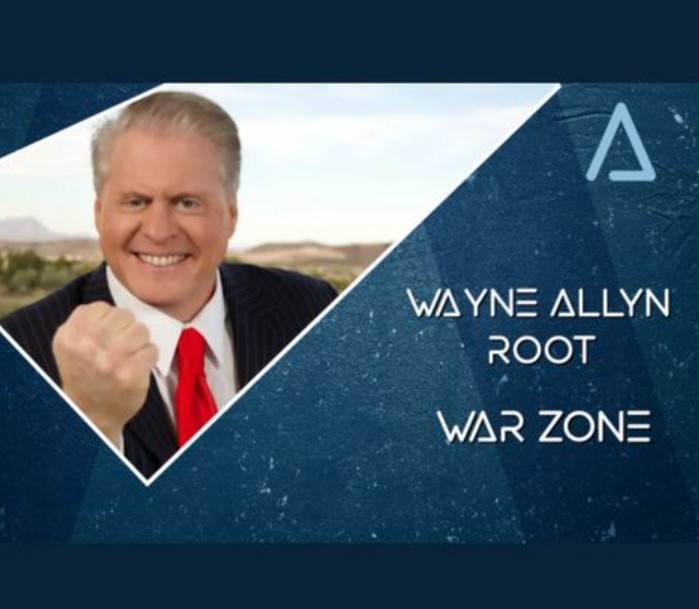Discussion focuses on the Assassination of Charlie Kirk, accomplices, and a Rotting Culture of Transgender madness
Via iHeart / Wayne Allyn Root:
The recent interview between Wayne Allyn Root and Geoffrey Gilson was a raw, provocative, and unfiltered discussion that combined grief, outrage, and political analysis in the wake of Charlie Kirk’s assassination. Both men framed Kirk’s death as far more than a tragic event. For them, it symbolized a tipping point in the culture wars, the clash over free speech, and the radical transformations gripping the United States. The conversation moved between the immediate aftermath of the killing, the deeper ideological battles shaping America, and the disturbing reaction of left-wing activists and media elites to Kirk’s murder.
Root began by establishing the enormity of the moment. Kirk was not just another conservative commentator. He was, in their view, a symbol of unapologetic Christian conservatism, someone who had built platforms, nurtured movements, and given countless young Americans the courage to push back against progressive orthodoxy. His assassination, therefore, was not random but deeply political, meant to strike fear into anyone standing in opposition to the dominant cultural currents. Both Root and Gilson insisted that while pundits will argue over motives, the broader significance is undeniable: Kirk’s death has become an inflection point in the ideological war raging across the country.
Gilson brought a particularly personal and historical perspective. Drawing on his own long career of observing politics in both Britain and the United States, he noted that political violence rarely emerges in a vacuum. In his view, the assassination was the culmination of years of escalating rhetoric, delegitimization of Christian and conservative voices, and the unchecked spread of radical ideologies. Gilson stressed that there is a straight line from the vilification of conservative leaders to acts of political persecution and now outright violence. He underscored how unnerving it was to see this happen not on the periphery of political life, but to someone who had been a household name and a rallying figure for the American right.
The conversation then shifted to the cultural frontlines, where Root and Gilson delved into what they called the madness surrounding transgender ideology. They characterized it not simply as a debate over identity or personal expression, but as an orchestrated campaign aimed at dismantling traditional values, undermining family structures, and silencing dissent. The imposition of this ideology in schools, in law, and across the media landscape was described as a form of cultural capture. For them, it was no coincidence that Kirk had stood firmly against this movement, using his platform to call out its inconsistencies and dangers. By aligning his opposition to transgender extremism with his unapologetic defense of faith and freedom, Kirk had made himself a prime target for demonization by progressive activists.
Root Takes Issue
Both men expressed deep frustration at the way the mainstream media and left-wing operatives responded to Kirk’s death. Instead of sober reflection, they saw glee, mockery, and justification. Rather than acknowledging the horror of an assassination in broad daylight, commentators they described as leftist apparatchiks seemed more intent on rationalizing it as the inevitable consequence of Kirk’s beliefs. Root and Gilson found this chilling, arguing that such reactions reveal the moral bankruptcy of a media class that claims to oppose violence yet indulges in dehumanizing rhetoric when conservatives are killed or attacked. They warned that this kind of selective outrage sets a precedent where violence against the right is tacitly encouraged, if not outright celebrated.
The interview was not only an analysis of the assassination itself, but also a broader indictment of where the country is heading. Root repeatedly emphasized that America is at a crossroads, where the rule of law, the ability to speak freely, and even the basic right to life for those with unpopular opinions are under direct threat. Gilson echoed this point, stressing that the West is witnessing a dangerous unraveling, where dissent is pathologized and opposition to progressive orthodoxy is increasingly equated with hate. The assassination of Kirk, therefore, is not an isolated crime but a warning flare, signaling that the political and cultural divide has reached combustible levels.
The tone of the exchange was mournful yet defiant. While both men acknowledged the gravity of losing someone as significant as Kirk, they also insisted that his death must galvanize rather than silence the movement he helped to build. They urged conservatives, Christians, and all defenders of liberty not to retreat in fear but to double down on their commitment to exposing corruption, challenging ideological extremism, and standing firm in the face of intimidation.
In closing, the interview conveyed both a sense of profound loss and a call to arms. Charlie Kirk’s assassination was framed not just as the killing of a man, but as an attack on an entire worldview. By connecting this tragedy to the broader issues of transgender ideology, media bias, and left-wing triumphalism, Root and Gilson presented it as a moment that demands clarity, courage, and resilience. For them, Kirk’s death is both a tragedy and a rallying cry, underscoring the urgency of the cultural and political battle now before America.


